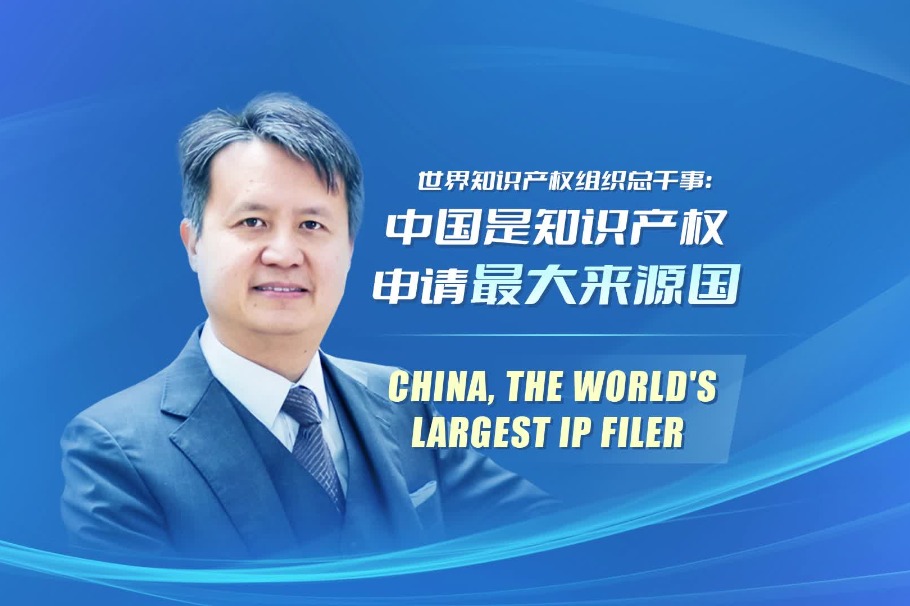World IP Organization hails nation's innovation

China has expended great effort to strengthen its innovation ecosystem, and the nation's progress in the intellectual property sector has been remarkable.
Daren Tang, director general of the World Intellectual Property Organization, said his organization looks forward to continuing to support China to prosper in the digital age.
"China is a long-standing and important partner of WIPO and we welcome the progress made in your country in building a modern and effective IP ecosystem," he said at the 2022 World Internet Conference Wuzhen Summit.
Every year, the organization releases WIPO Global Innovation Index, or GII, to track the most recent global innovation trends, ranking the innovation performance of around 132 economies while highlighting innovation strengths and weaknesses.
"China's progress in the GII in recent years has been remarkable," Tang said. The country ranked 34th a decade ago and is now 11th. The GII found that, for the first time, China has as many of the world's top 100 science and technology clusters as the United States.
"This amazing performance reflects China's commitment to strengthening its innovation ecosystem," Tang said, adding that China is strategically placed to significantly contribute to the next major waves in innovation.
This year's GII identifies two such waves that have the greatest potential to improve productivity and lives — the digital age and deep science.
"These findings are consistent with the fact that a third of inventions now relate to digital technology, including artificial intelligence, big data and the internet of things," he said.
Digital-related innovation has grown 170 percent faster than all other patent categories over the last five years.
"China understands these trends well, as well as the strong link that connects IP to innovation and creativity," he said.
Two Chinese small- and medium-sized businesses were among the five winners of WIPO's first Global IP Awards, which recognizes exceptional enterprises using IP to create an impact both at home and abroad.
Raycan Technology (Suzhou) specializes in all-digital radiation detection and imaging technology, while Shanghai Shylon Optoelectronics Technology focuses on outdoor architecture, landscape and street lighting.
In the years ahead — and with the tightening of money supply — it is very likely that quality and value will become as critical to success as quantity and scale, Tang said, adding that it is important for a fast-moving economy like China.
Future outlook of key innovation metrics is less certain, even though they displayed growth last year. Alongside continued investment in innovation, it is necessary to pay close attention to how that translates into economic and social impact, he said.




